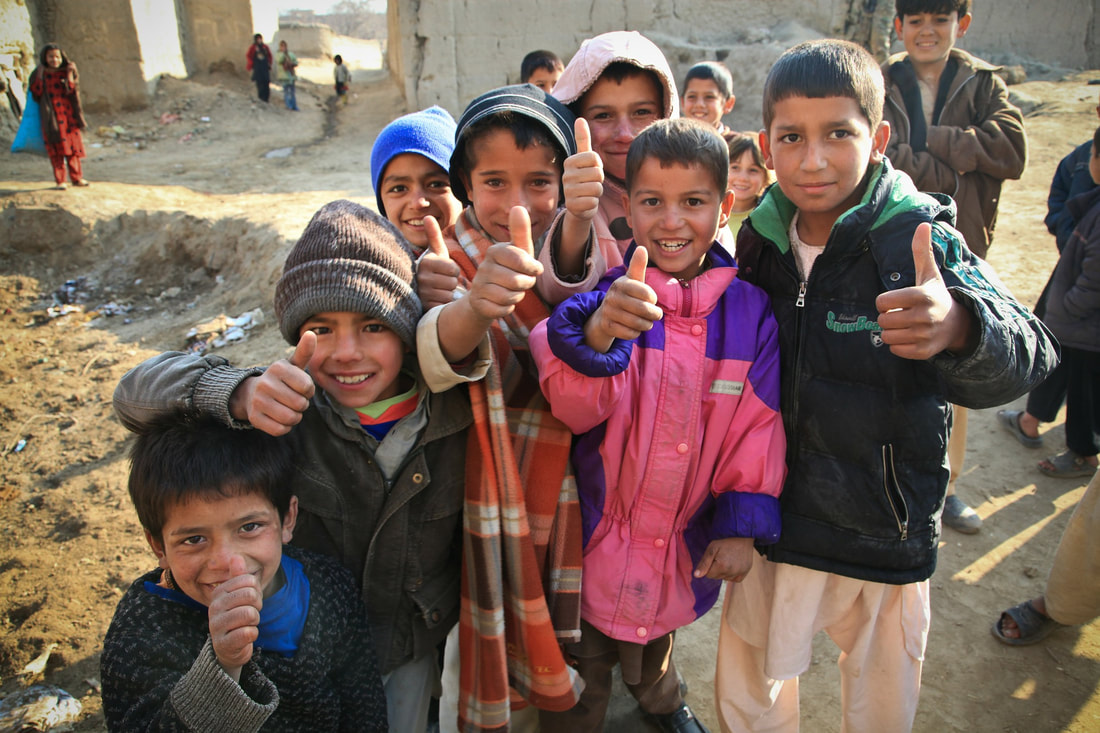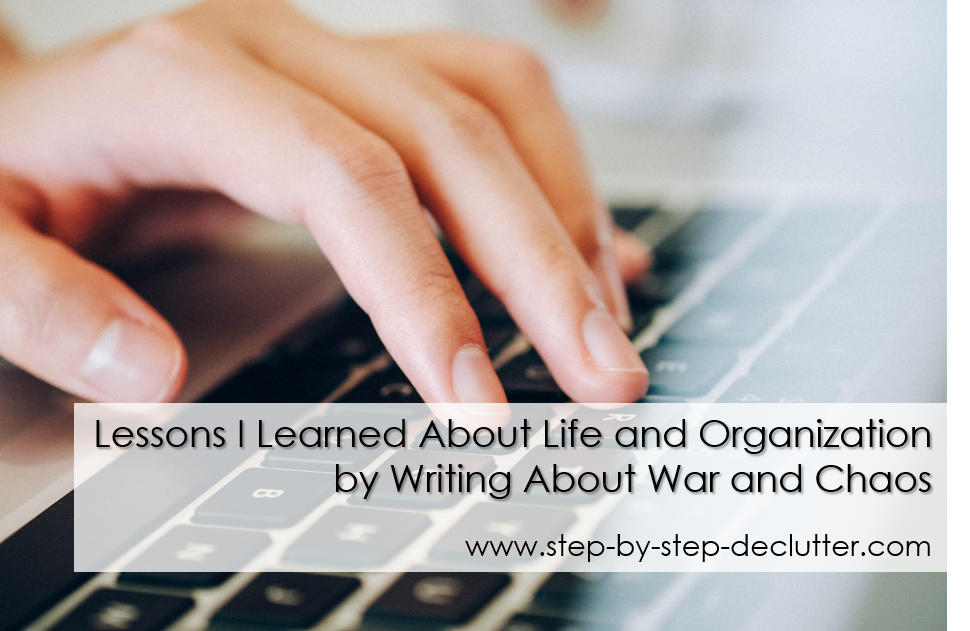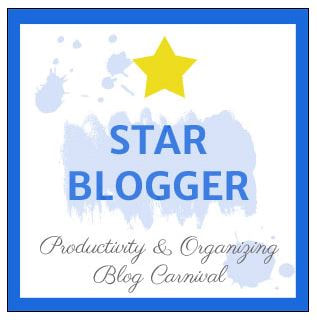|
|
|
Most people who know me know that I am a professional organizer. When they learn that I have also been writing a book, in company with my husband, on America's war in Afghanistan, I can see them wrestling with the disconnect this statement engenders. I confess that at times I have wrestled with this seeming disconnect myself. How did I become an author on such a topic? For starters, I am married to a military historian who has published eight books (not counting this one), all of which I have edited. In recent years, I have also assisted him in his research, and I was a contributor on his last two books. It has been an evolutionary process, to say the least, but I won't go into that now. Instead, I wish to capture some of the lessons I have learned about life and organization through the process of writing about war and chaos. Some of these lessons are specific to the topic of our book, while others are more general to the writing process. Lesson #1: Work with a BuddyMy husband and I have very different methods of writing. I edit as I go, laboring over every sentence until I'm satisfied with it. I go back to the beginning repeatedly and reread the whole thing (or portions thereof) to see if I like the way it flows. As a result, my process is slow, but my product is pretty nearly complete by the time I get to the end. In contrast, my husband's method might best be described as a sort of brain dump; he refers to the process as "vomiting on the page". He expels his ideas in a sort of stream of consciousness and then goes back later to "clean it up." He writes chapters at a much faster pace than I do, but they require more editing before they are publication ready. You might think that our two disparate approaches to writing would be incongruous, but the opposite has proven to be true. In fact, we seem to balance each other out, so much so that as I performed the final edit of our work, I found myself wondering repeatedly, "Did I write that, or did he?" This had to do, at least in part, with the fact that we edited each other's work. Thus, the final product was a true melding of our styles and voices. In part, however, it had to do with the unique contributions we both provided. Because he was much more comfortable with and knowledgeable about the topic, I could ask for his input when I was stuck, and his insights would get me on track and moving forward. On the other hand, because I felt the need to research things in depth, I was sometimes able to provide information that was new to him. THE LIFE/ORGANIZATION CONNECTION: When it comes to organizing and life, working with a partner can help you to achieve things you might struggle to complete on your own. A reliable, truthful, supportive friend can be a cheerleader, a source of emotional support, a pillar of strength, and a provider of wisdom. A buddy can help you to see your stuff, your space, and even your situation in new and meaningful ways. You can gain new insights about how to arrange things, how to part with things, and how best to proceed with whatever challenge you're facing. In addition, a partner can help you to stay on task. In the end, your final product will often be better than you imagined because of the encouragement and guidance of a trusted friend. Lesson #2: Perfect is the Enemy of the GoodBecause my method of writing is laborious and methodical, I can sometimes get bogged down by the process. In my effort to produce the perfect paragraph, I can waste precious time and experience unnecessary stress. My husband, with his different approach to the process, helped me to see that my work didn't have to be perfect to be good. Knowing that we were going to go back over the product multiple times with more than one set of eyes meant that I could set things aside that I was struggling with and move on. Invariably, things that had stumped me earlier would come together with relative ease after a brief respite. THE LIFE/ORGANIZATION CONNECTION: Sometimes we talk ourselves out of doing something because we know we won't be able to do it perfectly. On the flip side, we can sometimes get bogged down in a process of seeking perfection that actually prevents us from making progress. Few things in life are perfect (aside from newborn babies). Most of the time good is.... good enough. It's better to move forward and improve in small but meaningful ways than to become mentally, emotionally, and physically mired in misgivings and self-doubt. Lesson #3: Trust YourselfWhen we first started on our book, I often found myself wondering what on earth I was thinking when I agreed to take on the project. What did I know about Afghanistan or the war? While my husband assured me that I knew a whole lot more than the average person, I still wondered if it was enough. The more I read, and researched, and wrote, the more my confidence in the topic and myself as a researcher, interviewer, and writer grew. I began to trust that I could do what I had set out to do. I came to see that I am a person who can do hard things, and that hard things are really the best kinds of things to do because in doing them we become better versions of ourselves. THE LIFE/ORGANIZATION CONNECTION: If you are someone who feels overwhelmed by the organization process, you're not alone. It can be extremely challenging. Just wrapping your head around what needs to be done and knowing where to start is mind boggling for many. That said, it's the good kind of hard. Getting organized can change your life. It can make you a better version of yourself by improving the way you do things, how you look at the world, and how you interact with your environment. I truly believe that organization has the power to transform people's lives by reducing stress, increasing productivity, improving peace of mind and nurturing a sense of empowerment. If life is hard, one thing that can make it a little (or a lot) easier is getting organized. Lesson #4: Don't Give in to DiscouragementI admit that over the two plus years that we worked on the Afghanistan book my enthusiasm for the process and the product waxed and waned. At times I wanted to give up and walk away. My husband is a busy guy; he's almost always juggling multiple projects. There were times when I thought he would never have the time needed to help me get the book finished, and I didn't see how I could possibly do it alone. We figured it out. He made the time. We worked together and made it happen, and if I'm being honest, I have to admit that I am pretty proud of what we accomplished. THE LIFE/ORGANIZATION CONNECTION: Think of the word discouragement. The prefix 'dis' gives the root word the opposite meaning - so, for instance, trust becomes distrust, or not trusted. The suffix 'ment' comes from the Latin word mente which means mind or thought. So, discouragement is an absence of courage of thought. Synonyms for courage include determination, endurance, and fortitude. It's more than just bravery; it's sticking with things that are hard and seeing them through. As we've already established, getting organized can be difficult, challenging, and even overwhelming. It requires courage in the form of stick-to-itiveness, a willingness and conviction to persevere through the rough patches. Just as with our book, sticking with the organization process is well worth the effort, and you will feel wonderfully accomplished and proud when your goal is met. Lesson #5: Growth is Part of the ProcessIn the beginning, every chapter was painstaking. I lacked confidence, and I didn't trust myself. As a result, I worried and worked extra hard to understand the subject matter until I could explain it in layman's terms. In time, something inspiring occurred. The more I researched and interviewed and wrote, the more comfortable I became with my ability to do those things. My belief in myself improved. I became not only comfortable with, but proficient in my subject matter. It got easier. It wasn't until I found myself easily conversing with my husband about the challenges associated with using B52's for close air support or quickly creating a call-out box on the difference between the Taliban and al-Qaeda without having to look it up that I realized I had grown into and embraced my new role. It was a good feeling. THE LIFE/ORGANIZATION CONNECTION: I have seen a similar transformation in some of my clients. At first the organization process is daunting, and they are trepidatious about undertaking it. The more they work at organizing, the more comfortable they become with it. With enough effort and consistency, some actually change the way they think and act such that they truly become organized people. The more you do a thing - anything, really - the easier it becomes. Lesson #6: Look for Sources of InspirationMy confidence and comfort level took a turn in the right direction when I met a wonderful woman, an American soldier, who not only provided me with an interview that became the basis for one of our chapters, but also introduced me to two other women, both Afghans, who helped me understand Afghanistan and the war in new and eye-opening ways. All three of them continue to be a source of inspiration to me. They see needs, and they strive to fill them. They are making a real difference in the lives of people in truly desperate circumstances. Their stories gave meaning and purpose to my writing. THE LIFE/ORGANIZATION CONNECTION: Inspiration motivates and excites us to do and be better. It can come in many forms - a Pinterest image, a song, a blog post, a story, a person, etc. Look for ideas, resources, and people who make you want to improve and believe that you can. Anything that weighs you down or makes you feel inferior should be avoided. Look for the uplifting and let it embolden and excite you to do the things you've been afraid to do for one reason or another. Lesson #7: Look for the Silver LiningLike so many aspects of life and areas of the economy, the publication industry has been impacted by COVID-19. Our publishers, at least, are way behind on their review process. As a result, our deadline got moved back. In some ways this was a bummer because we were both eager to get done with the book and move on to other things. In the end, though, having extra time proved to be a good thing. It allowed us to tell a more complete tale of the war and its impact. By the time we sent our manuscript off, the United States had withdrawn from Afghanistan, and we were able to capture that process and its impact in our book. Had we met our original deadline, that would not have been the case. THE LIFE/ORGANIZATION CONNECTION: Life is full of challenges and setbacks. Often my organization clients are struggling to regain order in their lives after experiencing some sort of major life change or other challenging circumstance. Otherwise orderly people can become disorganized in the midst of life's chaos. Know that unexpected changes, no matter how unwelcome they may be, bring new opportunities in the wake of the trials. There is always something to be learned and gained from every experience. Often times of change are opportunities to rethink one's situation and make a fresh start. Lesson #8: Step Outside Your Comfort ZoneTo say that the topic of the Afghanistan war was outside my comfort zone is an understatement, but it has become a topic that I am not only comfortable with but somewhat passionate about. We often talk about "thinking outside the box". My husband, who also teaches about the concepts of narrative and cross-cultural relations, promotes the idea of expanding one's box to include new ideas and ways of thinking about and doing things. Our book taught me that doing so is not as difficult as you might think. It requires effort, to be certain, but as noted already, it gets easier over time as you expand your mind and develop your skills. THE LIFE/ORGANIZATION CONNECTION: Often a lack of organization can be attributed to habits and behaviors. Changing our behaviors and developing new habits (or systems) can make a huge difference in the level of organization we enjoy, but it all begins with a willingness and desire to step outside our comfort zones and try a new way of thinking about and doing things. Lesson #9: Everyone Thinks They Are on the Right SideAs Americans, we think of the Taliban and al-Qaeda as the 'bad guys', and we think of ourselves and our allies as the 'good guys'. The Taliban and al-Qaeda see things the other way around. They believe their cause is just. They see America and the West as decadent and depraved to the point that they have a duty to rid their world of our influence. Everyone thinks they are on the right side doing the right thing for the right reasons. I truly believe that there are very few people in this world intentionally pursuing evil for the sake of evil. People generally do what they do because they believe it's the right thing to do, and they want to be right. THE LIFE/ORGANIZATION CONNECTION: Living with other people, no matter how much we love them, is challenging. Often, those we love have a different approach (or lack thereof) to organization and clutter. Their clutter tolerance may be higher or lower than our own. Such circumstances can create tension and conflict within the home. Achieving compromise can be difficult, but it starts with recognizing that other people aren't doing what they do simply to rile and annoy us. They're doing what comes naturally to them. The first step to achieving consensus is learning to understand one another's perspective. Lesson #10: Things Are Often Not as They SeemIn our research we looked at a ton of primary source documents. One thing that quickly became apparent was that every source has a bias. Everyone, be they politicians or reporters or military commanders or common, everyday people, is trying to tell their story, and every story is impacted by the perspective from which it is told. Most people, whether consciously or unconsciously, don't tell the whole story; they tell the story they want you to hear. Their intent may be entirely innocuous. Nevertheless, what they are really sharing is a message, and the story is the means of conveying that message. THE LIFE/ORGANIZAION CONNECTION: We all have messes and fall short and make mistakes and struggle. No one's life is perfect. No one's kids are perfect. No one's house is perfectly organized - not even a professional organizer's home! When we view other people's lives through the lens of social media, it's easy to feel inadequate in comparison to the happy smiles, extravagant vacations, joyous occasions, clever projects, and glorious accomplishments that most people share on these platforms, Don't let other people's carefully curated experiences fool you into thinking that you are less capable or successful than them. We're all just doing the best that we can, including you. Give yourself some grace. Final ThoughtsThe Afghanistan book often felt like a burden to me while it was a work in progress, but once it was complete, I felt great fondness for the project. I'm grateful to have had the opportunity and experience. I'm proud of our hard work and the product we produced. I'm excited to see our book in print. What's more, I like how it has changed me for the better. It has helped me to grow and to develop my skills and abilities.
Isn't that the way it is with challenges? They seem really difficult when you are experiencing them, but once you've overcome them, they don't seem like such a big deal. In fact, they often feel like a blessing. I think that's because they are. Life is about growing, and changing, and improving, and the surest way to do those things is to push yourself to do things that feel a little (or a lot) beyond your current abilities - whether that means writing a book or tackling the mountain of mementos in the attic. In the end, I think you'll find that you are glad you made the effort.
28 Comments
Katelyn
3/4/2022 02:10:53 pm
These are some great lessons! I love that you were able to apply this experience in so many different ways both in your own life as well as to organization.
Reply
3/7/2022 11:09:19 am
I didn't know this about you! That is wonderful that you can work together on books. My husband and I have different writing styles so it is not something easy for us to do. Maybe some day.
Reply
3/7/2022 11:40:56 am
It was fun working together. Our methods are more different than our styles. I think we actually learned a lot from each other, and we were never at a loss for conversation
Reply
3/7/2022 12:09:17 pm
Wow, so neat that you were a part of this project. I respect your desire to represent both sides of this complex story. Not a minor undertaking for sure! I love the way you drew lessons from your writing project that apply to organizing. I definitely agree that once a project is completed, and especially if you've been able to maintain a system for a period of time, that looking back it seems not so bad. The blessing is what lingers. I often call it the "afterglow."
Reply
3/7/2022 01:34:03 pm
The more I thought about it, the more I realized that lessons gleaned from one experience often have application in other aspects of life. As an organizer, I tend to think in those terms, so it was easy to see the application.
Reply
3/7/2022 05:24:29 pm
It's impressive that you've edited all of your husband's books and collaborated on the this and another book with him. That's teamwork! I love how you figured out how to mesh your styles and make it work. It seems like you each brought your strengths to the table to create something truly incredible.
Reply
3/7/2022 07:51:12 pm
Thanks, Linda! It’s been fun collaborating and learning from each other.
Reply
3/10/2022 02:20:09 am
As a professional writer and editor, as well as a professional organizer, I often find that the skills that help us in the latter career are key to what we can achieve in the former...if we will only be the kind of client who listens to the advice of the organizer! I love how you identified these connections, and with each one, I kept thinking, "Oh, this one is the the most true!" You really captured the essence of the collaborative experience, the self-doubt inherent writing, and all of the concepts every writer (and the writer's internal organizer) should consider! Great post!
Reply
12/5/2022 01:11:27 pm
What a great blog post! Very insightful, with lots of lessons about both writing and organizing.
Reply
4/5/2024 04:38:05 pm
The more familiar you are with the topic, the easier it is to write about.
Reply
4/5/2024 04:03:06 am
I went and told all my friends about your article after I read it.
Reply
Leave a Reply. |
Archives
November 2022
Categories
All
|
Proudly powered by Weebly





 RSS Feed
RSS Feed